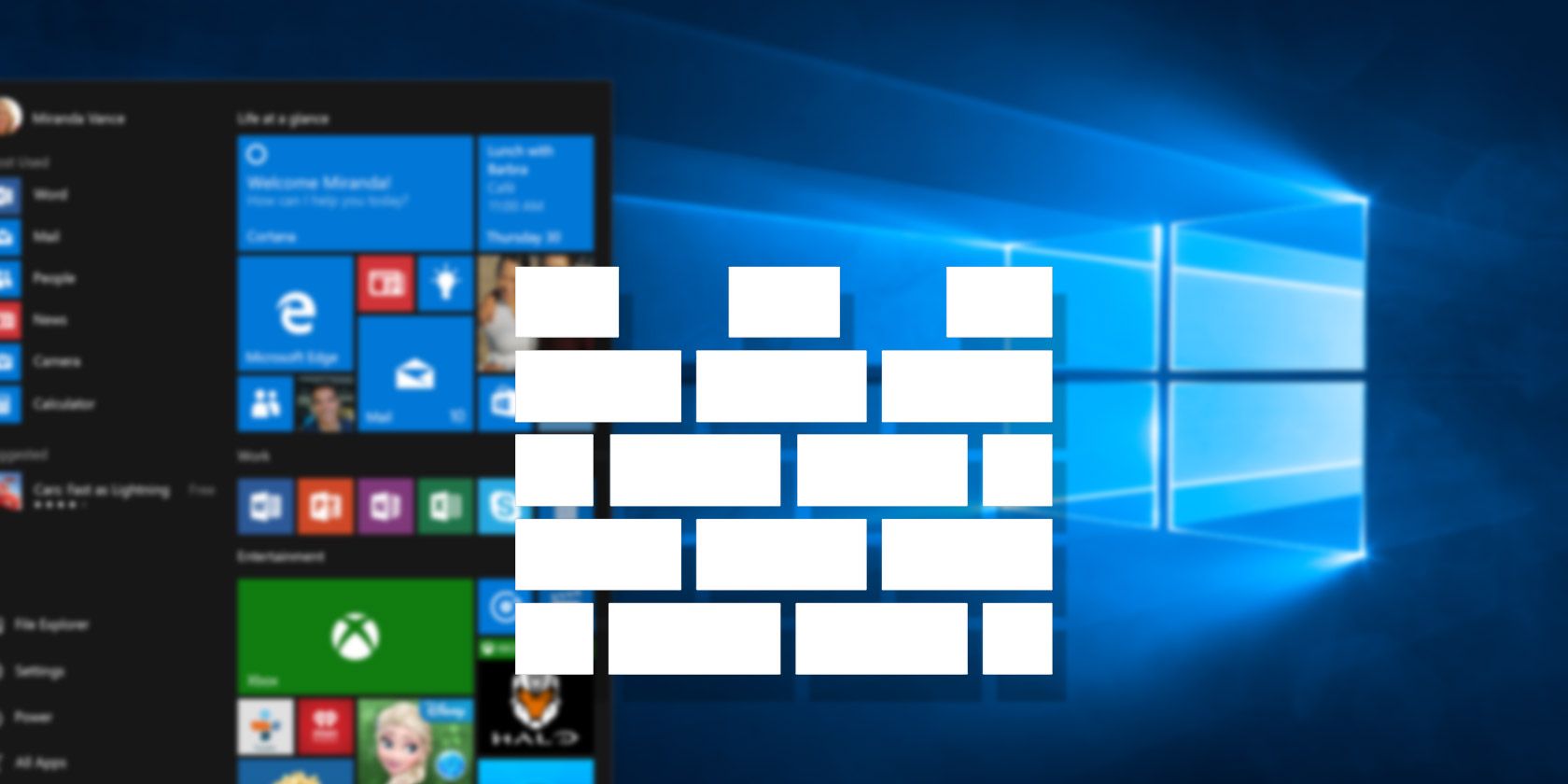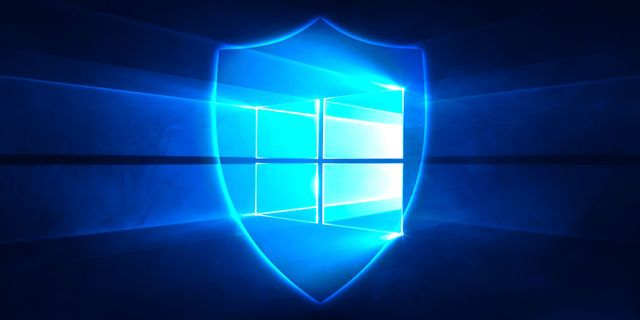We all know that Windows needs some kind of security software -- the only trouble is deciding which security software to use. Yes, even if you're up to date on Windows Updates and such, you still need proper security protection!
In the past, Windows Defender was overshadowed by other options, but it's been getting better over the years. In fact, it's one of the things that make modern versions of Windows more secure than previous versions.
And now that the Anniversary Update for Windows 10 brought several much-needed improvements, Windows Defender is quite a contender. Here are a few reasons why you should consider using it.
1. It's Built Into the OS
At first this might seem like a silly point, but it's not as stupid or empty as it sounds. There are a handful of benefits to Windows Defender being integrated directly into the operating system itself.
For starter, there's no need to download or install anything. If you're using Windows 10, you already have Windows Defender residing on your system. You don't have to seek it out. Just turn it on.
There's also no need to manage separates updates. When new builds of Windows Defender are made available, they're retrieved using Windows Update -- something that you should already be using -- so you never have to worry about it being outdated.
Windows Defender integrates with the system itself:
- It can identify tampering with the Registry or app settings.
- It works seamlessly with User Account Control requests.
- It can scrub malware from the Windows Recovery Environment.
And just because it's built-in doesn't mean it's bad. Let's not forget that third-party alternatives have had their fair share of security blunders in the past too, including big names like Symantec and Norton.
2. It's Free Without Nag Screens
"It's free!" usually isn't enough of a reason to use something -- lots of crap is available without a price tag -- so when we look around for free software, what we're really looking for is "free and good enough".
We'll cover the "good enough" aspect of Windows Defender in the reasons down below, but first let's take a moment to explore how Windows Defender is truly free.
Like we mentioned before, Windows Defender is built into the operating system itself so you don't have to pay anything extra to use it. But unlike other free security programs, this one sidesteps two big issues that usually arise.
First, most security programs come in free and paid versions, and this means that the free version tends to be limited -- or even crippled -- in some way. You might get real-time detection but no way to remove malware, for example.
Second, security software is a business where money is the bottom line, and this often manifests in the form of "nag screens" that ask you to fork over cash for paid upgrades and advanced features.
Windows Defender is completely free with all features available and never nags you to upgrade to a paid version -- because such a thing doesn't exist.
3. It's Complete With Advanced Features
A lot of people still view Windows Defender as the primitive and underdeveloped program that it was when it first debuted with Windows XP, but a lot has changed since then. It's full-featured now.
Real-Time Malware Protection
Windows Defender is a real-time solution that quietly runs in the background as you use your computer. It actively looks for malware currently running on your system, and if detected will block it, and quarantine it.
Reassuringly, you can go through your quarantine history and restore falsely blocked programs if Windows Defender makes a mistake.
It will also scan files and installers to prevent malware from entering your system and embedding itself before it's too late. If you want to exclude certain files and folders from this scanning behavior, you can.
Cloud-Based Updates
The hard part about computer security is that anti-malware software is always one step behind actual malware, so the most vulnerable period is when a new bit of malware is first released (zero-day exploits and the like).
That's why you should keep Windows Defender's cloud-based protection on. This sends reports on newly detected malware back to Microsoft so they can develop new detection rules that are then applied to all Windows Defender users.
This is as close as we can get to real-time updates of malware definitions.
Offline Scanning
Sometimes a really pesky malware infection can't be cleaned while the operating system is running. When this happens, Windows Defender can reboot your computer and clean everything prior to loading Windows.
Prior to the Anniversary Update this feature (known as Windows Defender Offline) was only available if you had a bootable disk, but now you can run it hassle-free right from the Settings app.
Limited Periodic Scanning
If you really want to use another piece of security software, there's no need to disable Windows Defender entirely now that it has a new feature called Limited Periodic Scanning.
This feature integrates with the Automatic Maintenance feature of Windows 10 to run a scan for malware during times when you aren't using your computer. You can manually set scan times in the Control Panel.
With it enabled, Windows Defender can find and dispatch malware infections that may have been missed by whatever other security programs you're using without interfering with them and causing conflicts.
4. It's On-Par With Other Options
If you have sensitive data on your machine, or if you're working in a business environment, or if you're wary of Microsoft's growing privacy issues, then okay -- Windows Defender may not be the best fit for you.
But for the other 99% of us, it's more than enough. In April 2016, Windows Defender was found to have a 99.8% detection rate in malware prevalence testing. That seems pretty darn good to me.
Now, you might be able to point to a handful of paid solutions that have better detection rates and what not, but would that really be a fair comparison? Perhaps if Windows Defender required a subscription... but it doesn't. Let's compare apples to apples.
The truth is that most home users are using free security suites instead and when you compare Windows Defender to those applications, it actually performs better than you'd expect -- and for home users, that's more than enough.
Practical PC security isn't about living inside a nuclear bunker that can withstand the worst of the worst. It's about making sure your front door is locked when you're sleeping.
Windows Defender: It's Good Enough
At the end of the day, we need to listen to the experts and start using up-to-date security software -- and for most of us, Windows Defender is more than "good enough" to get the job done. It's better than its reputation would suggest.
One more thing: Judging the efficacy of your security software by how many threats it detects is misguided. In fact, if you're practicing good security habits, your security software should rarely detect anything! Just something to think about.
How do you feel about Windows Defender? If you don't use it, why not? What do you use instead? Share with us below and help us to understand your position!




